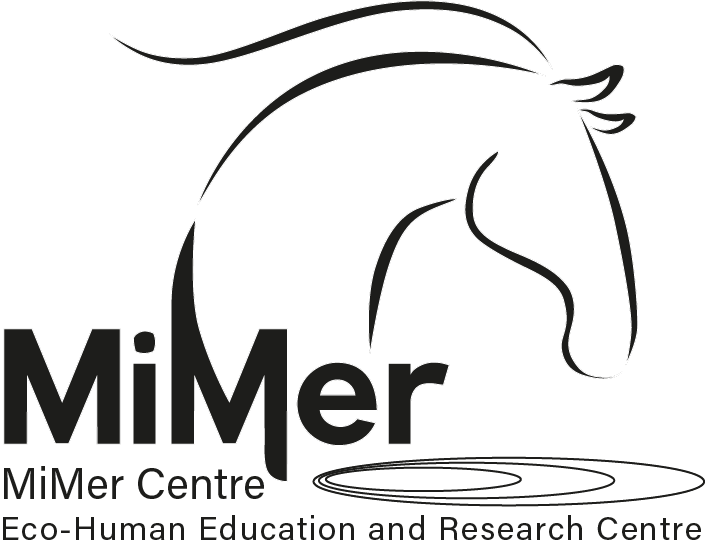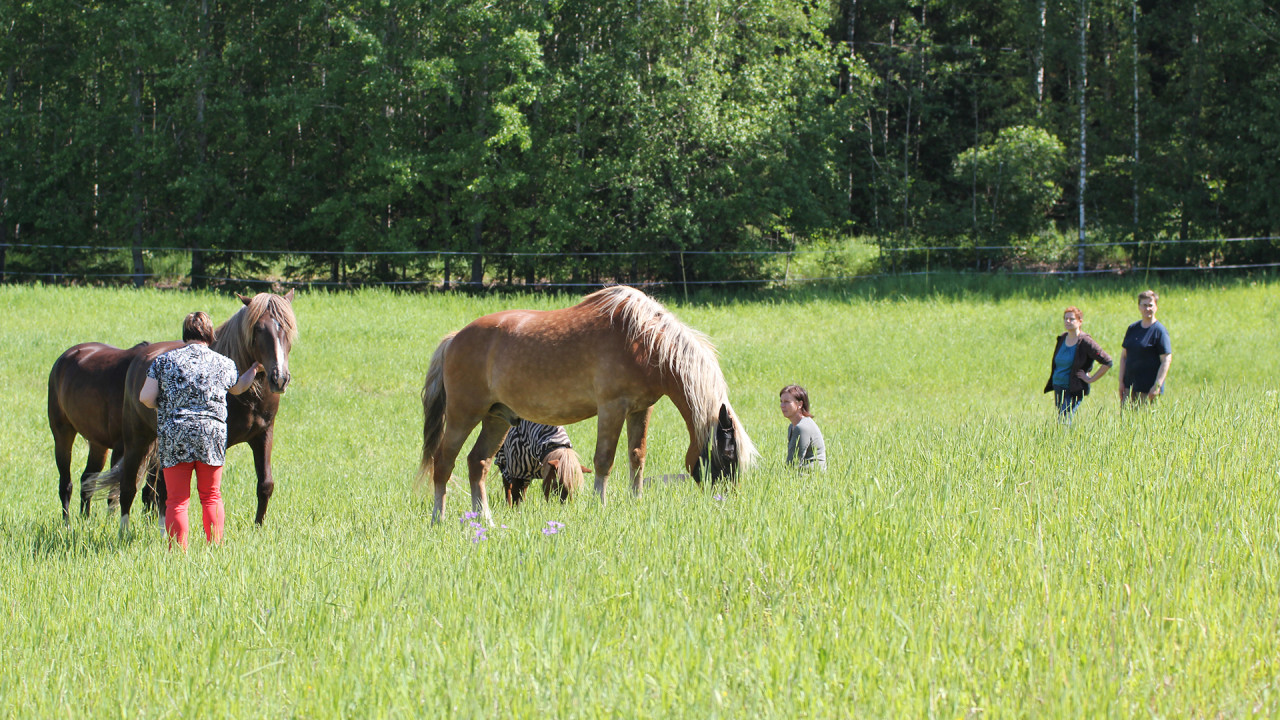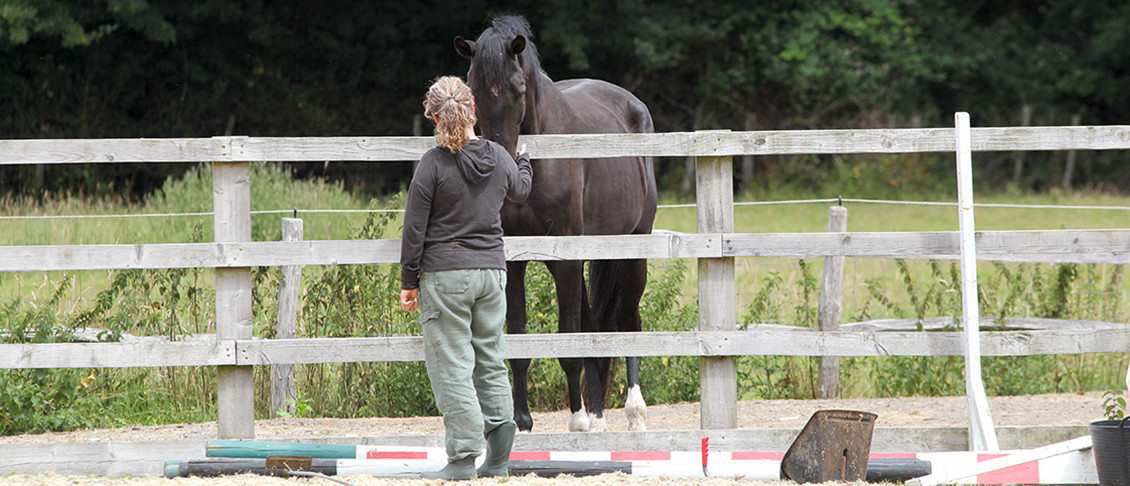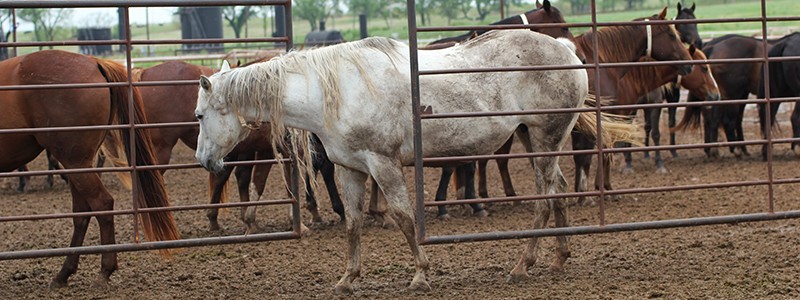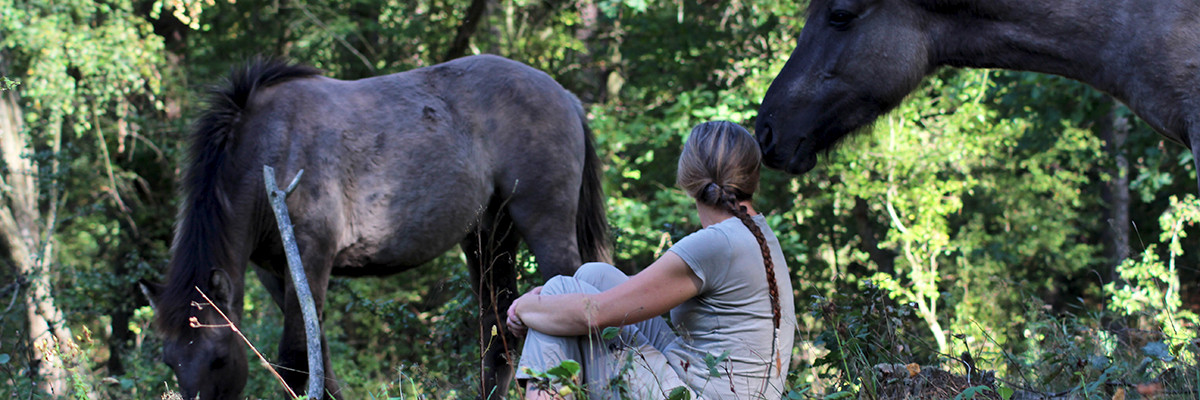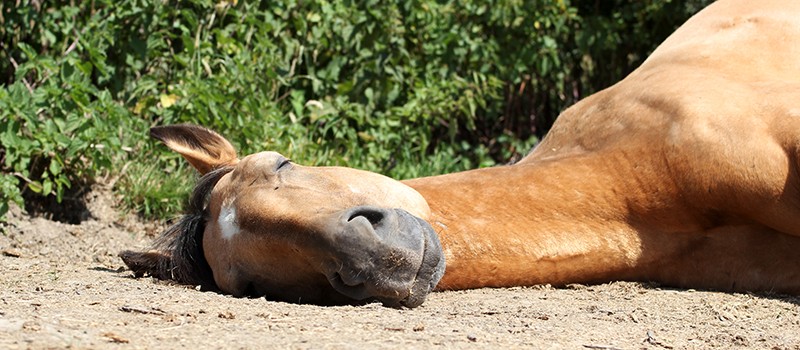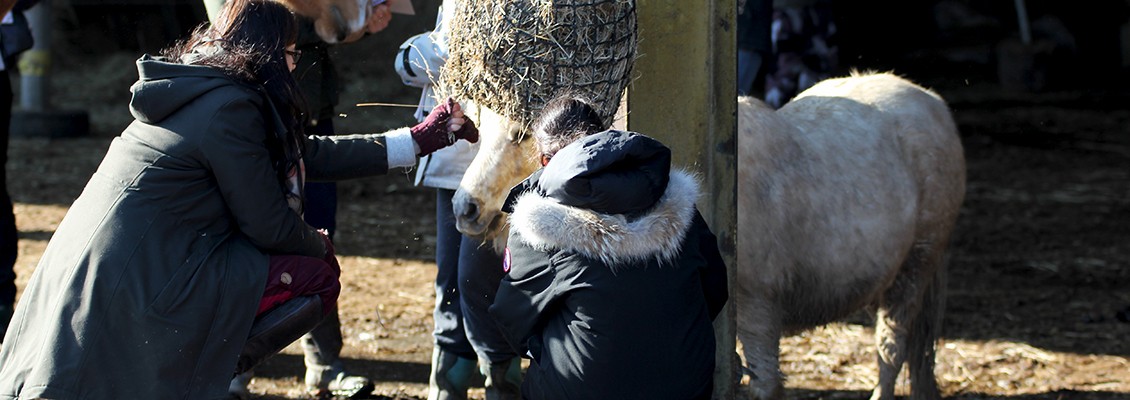The difference between trauma and stress and the difference between trauma in humans and "trauma" in non-humans The picture below shows the window of tolerance (and window of learning). This is the window in you that needs to be open enough for you to learn something new. It demands the factors – openness and tolerance to new information (but potentially also new situations, new environments, new beings (humans, non-humans) to relate to). When you move too far to the left side in this picture (or bottom if you turn the picture around – a window has 4 frames…), you will gradually defend y...
The beginning of an exploration… Why do we work with animals in therapy and learning programs? Having been involved in equine assisted therapy and learning for some years, as an equine professional, educator and mindfulness instructor – and as a client, this is what I think of it (right now…) To grow, to develop, to heal – we need "the other", that sees us, accepts us, accompanies, challenges and supports us – and at times comforts us, to help us see ourselves from their perspective. Animals in Animal Assisted Activities of any kind are not different in these settings to what they are in...
To anthropomorphize – is the human ability to experience sentience and agency in another being (or object). It is the ability to sense another “self” in the one she meets. If she loses that ability, she gets disconnected from her own context, her own environment (including anyone being or object within it). Then everyone becomes objects – and the possibility to intersubjectivity (meetings between subjects/individuals) disappears. The ability to have shared experiences disappear. When this happens, you lose your personhood, and you are not able to grant personhood to someone else, regardless of if this being is a human, a horse, a computer.
To be able to anthropomorphize is to have the ability to put yourself in someone else’s shoes. It is the ability to understand that they have another perspective, come from somewhere else, share the same world as you do, on a physical level, but lives in another world, their world, their umwelt. No matter if it is a human, a horse (and yes, or a computer).
Regarding the computer, we know and intellectually understand that a computer IS an object, but it does not stop us from many times treating it as if it is an agent, with its own will. We have a relationship with our computer (many of us), we get angry at it, impatient with it, frustrated with it – or happy with it – but for now – I will leave our human relationships with computers outside of this post).
Being a being is being relational.
Simple? Huh? – Yes. Seemingly so. Or. It is that simple. But we humans like to complicate things, and since I am a human, I am going to do just that! Not for its own sake, but when we look closer at things, go through the complex layers of something, look at it from different perspectives, we often come back, or home, to a simpler “truth” (insight). So, I invite you to follow me on a little exploration – in the hope that it will clarify some things. And if it doesn’t do that for you. At least, writing this – is helping me clarify my thinking, to me 😉
Dynamics. Another word for relationships – interactions – being with one another…(as the ones who read/train with me more regularly know - I often use the Intersubjectivity theory as a framework to look at relationships).
Everything. If we broaden Rewilding to include Rewilding of us humans. Which I think is absolutely necessary. In the bigger schemes of things – we cannot reverse the development of mass extinction and work towards diversity if we do not include working with the human psyche and mentality.
This is why we in MiMer work with our courses we call Rewild Your Heart. True and successful Rewilding depends on human awareness – of ourselves, how we function, what drives us, what our belief systems are and so on. We of course need species specific knowledge and knowledge about species environments and contexts, but without the puzzle piece that is us – humans – we will not succeed sustainably. I have looked at different Rewilding efforts of animals and nature, and their success rate all come down to how integrated the awareness of the huma component is.
So that is the start. The human, too, of course, is an animal. And since we have spread all over the globe, we impact everything. All environments are our environments. And everything that lives there needs to be able to co-exist with us. And we are the ones that need to make that happen. As we are the invasive species, and we tend to put our needs above all other species’ needs.
Why is emphasizing the differences between horses and humans so important to me? Isn’t it nicer, kinder of me to look for the similarities? Is not looking for similarities between us and horses making us respect them more? Understand them better? Being able to empathize with them better and therefor provide them with better welfare and happier lives?
I do not think so. Because who am I really empathizing with? The horse? Or myself?
Empathy is recognizing that we are similar, have similar emotions, share some experiences because we all are alive and have experiences… but empathy is also knowing that we all are unique. We have species-specific needs – and then we all have unique, individual needs, personal needs.
The Imitation Game is a Perception Game…
(And bear with me... this is about horses - and horse-human interaction, too.... I am stumbleing around about in this post - the text is not crystal clear - yet - I wanted to share it - something is forming in me, about the importance of embodiment, the shared nature of perception, how we form our beliefs as humans - how horses can help us see this - by being them.)
The imitation I talk about here has nothing to do with copying or imitating for its own sake. Imitation is an important way to, and of learning. You find imitation (of various kind; mimicking, mirroring, emulation, “true” imitation, teaching, schooling/herd/group behavior) in social learning, in language learning, in so called situated learning – as e.g. in apprenticeship models, etc. Imitation is also an important tool when to getting to know someone (as in the chameleon effect – which is about creating/ “achieving” liking each other – and in creating a common ground of understanding and communicating with each other – creating social contracts). Imitation is so much more than copying – and play a big role in all mammals’ development and growth into adults, but also in adult life. It is a corner stone of how we interact with each other, albeit often imitation is not conscious, it can be looked at, made conscious, and experimented with.
Or why it isn't about healing at all... How do we "heal" from trauma? (that broadly speaking is anything that overwhelms you and you do not have "room" to contain, and therefor have to look at piece by piece until it is integrated in your life. It can be any hardships in life, broken relationships, deaths, sickness, injuries, accidents, war, natural disasters, robbery, an adverse childhood – just anything). If it is an old trauma (or series of traumas), you have used different defense and coping strategies that has served the purpose of protecting you from the trauma(s) and the pain and ...
